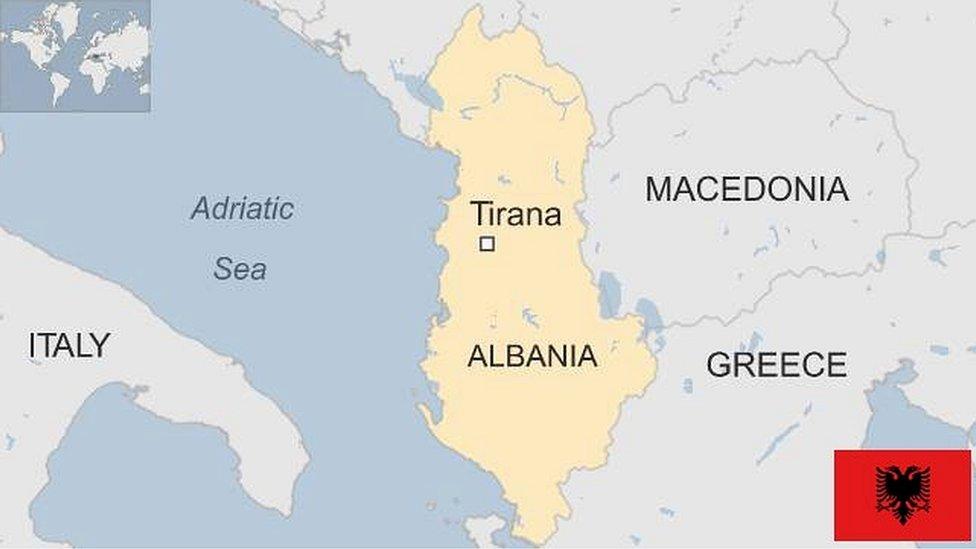Human trafficking: Poor women and girls targeted in Albania
- Published
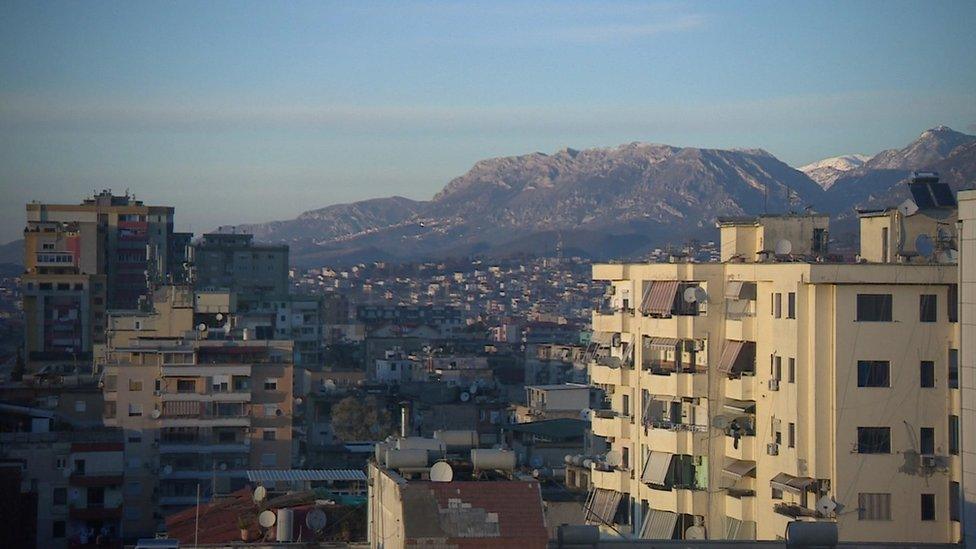
Human traffickers have used Albania for more than two decades
The trafficking of people into the UK is on the rise. The latest figures for 2015 suggest that 3,266 people were potential victims of trafficking, a 40% increase on the previous year. The largest number - 600 - came from Albania. The BBC's Reeta Chakrabarti has been speaking to victims of trafficking in both the UK and Albania.
'I was forced to sleep with several men'
In a women's refuge in southern Albania, the victims of trafficking and violence are mere schoolgirls, 10 or 12 of them eyeing us shyly and looking impossibly young.
They all have tales of brutality and exploitation. Some of these children already have little children of their own, the products of the rapes they were subjected to.
Seya was just 14 when she left a violent family home. She was sold into a trafficking ring by a man she thought was her boyfriend, and found herself in a terrifying network of underground crime, unable to distinguish between the pimps and their victims.
She was forced for months to sleep with several men a day, and "international clients" who paid more at night.
"I hate them," she said, speaking with remarkable composure for someone so young. "I want them to get the punishment that they deserve, because to be under someone's thumb, to do the things they want you to do for them... They steal your freedom - they use you, rule you - I don't know, it's very degrading."
Seya's story is sadly far from unique. Albania is a small country in which trafficking - trading in human beings - took hold in the years after the collapse of communism in 1990.
It has since been known as a source nation for people being kidnapped, smuggled and then sold. The traffickers are well organised and have a reputation for brutality.

'Many men raped me every day'
Other victims include Anna, whom we spoke to in the UK. She came from a small rural town - was duped by a supposed boyfriend into leaving home - and then sold into prostitution in Britain.
She was brought here, but has no idea where she was.
"Anna" says she was gang-raped, imprisoned, and blindfolded underground
"I was somewhere underground," she said. "I had no sense of the world around me. They would not let me see. I entered the building blindfolded."
Anna is in her late 20s, and was a virgin until she was trafficked. Weeping throughout our interview, but insisting that she wanted to tell her story, she recounted how she was raped repeatedly every day, by many men.
They did things to me, she said, that I would never have imagined possible.
Anna eventually escaped, and is now supported in a safe house run by the Salvation Army. She has a baby, which gives her a reason to focus on her future and to hope.
But her story, and that of Seya and of hundreds of others, should trigger alarm in the authorities in the UK and across Europe. They are lives broken by a brutal crime.
The number of adult victims of human trafficking and modern slavery that has been referred to the Salvation Army has grown "exponentially", said Anne Read, director of Anti Trafficking and Modern Slavery for the group.
And Albania is of particular concern. "People's lives are torn apart by this heinous crime," she said.

Human trafficking in Albania

Poor women and girls, especially from rural areas, are most vulnerable
They are attracted by false promises of marriage and job
Most victims are subjected to sex trafficking and forced labour in several European countries
Deep-seated attitudes towards women contribute to the problem, campaigners say
Government efforts in tackling the problem are still insufficient, despite recent progress
Sources: United Nations, US State Department

Trafficker: 'It's terrible'
Campaigners against trafficking say that deep-seated attitudes in Albanian society towards women contribute to the problem.
This is a male-dominated culture, where young women in poorer, rural areas are vulnerable to domestic violence and are looking for a means of escape. It makes them easy prey for the traffickers.
Human trafficker: "Everyone was doing it then"
The victims are often manipulated and recruited through false marriages and employment opportunities, with traffickers promising them to cover their living expenses, according to a UN report., external
The country's record on prosecutions is patchy but the government have been praised for taking steps to improve prosecutions. A recent US State Department report made recommendations that more needed to be done to" vigorously investigate, prosecute, and convict traffickers, including complicit officials".
The Albanian authorities let us talk to one prisoner being held at a high security prison in Korce, in the east of the country. It is the middle of winter, the snow is thick on the ground, the prison bleak and freezing.
The prisoner is Fatos Kapplani, currently serving a 15-year sentence for trafficking children to Greece, and forcing them to work as prostitutes or beggars. He is himself a father, and was at the time married. What, I asked, made him do it?
"It was a time that everyone was doing that kind of thing," he says, with a shrug that is perhaps regret, perhaps shame.
"It's terrible. What if that were my child and someone did that to them. It's very terrible."
- Published30 March 2016
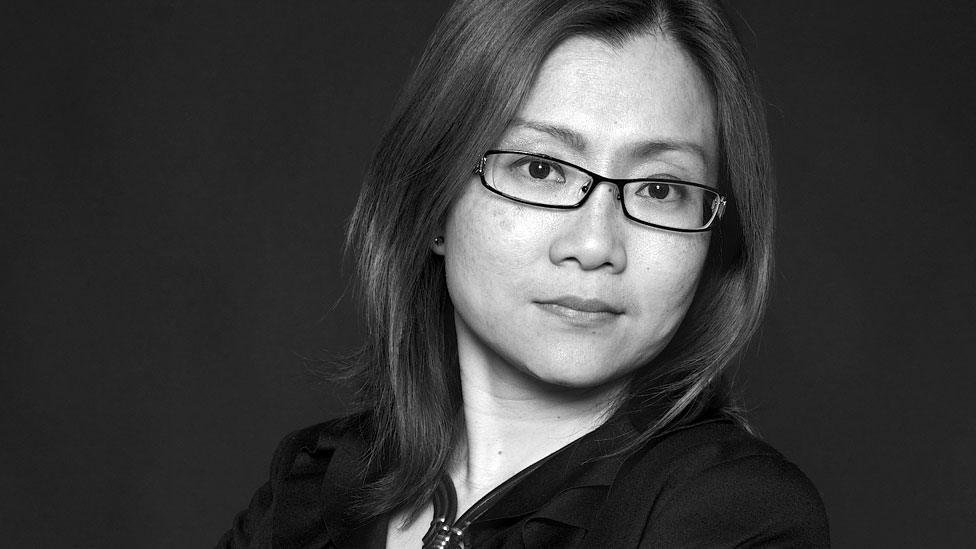
- Published12 October 2016
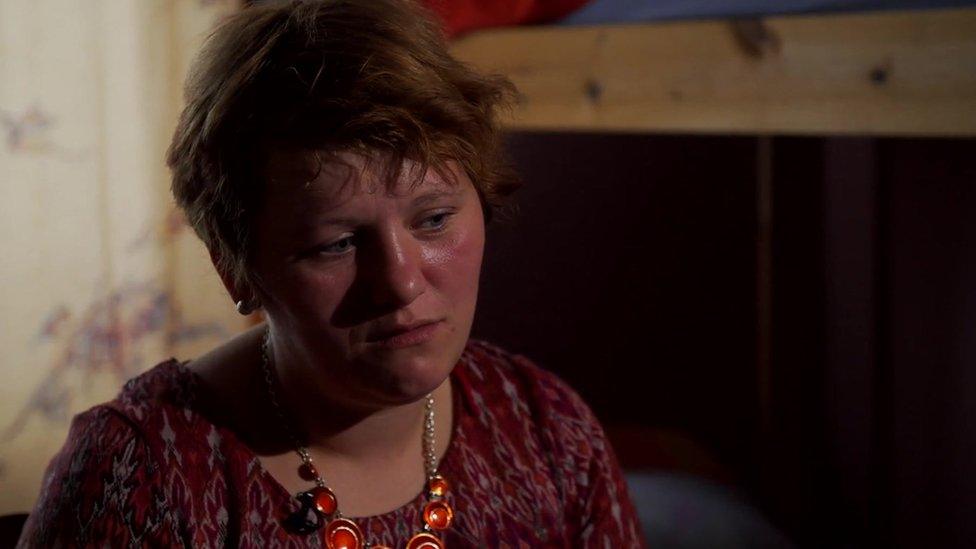
- Published28 July 2015
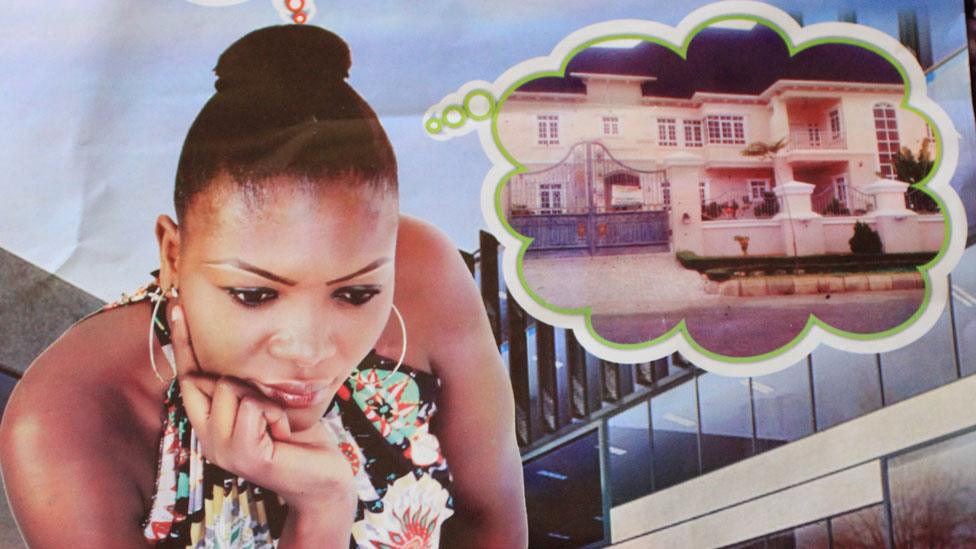
- Published21 July 2015
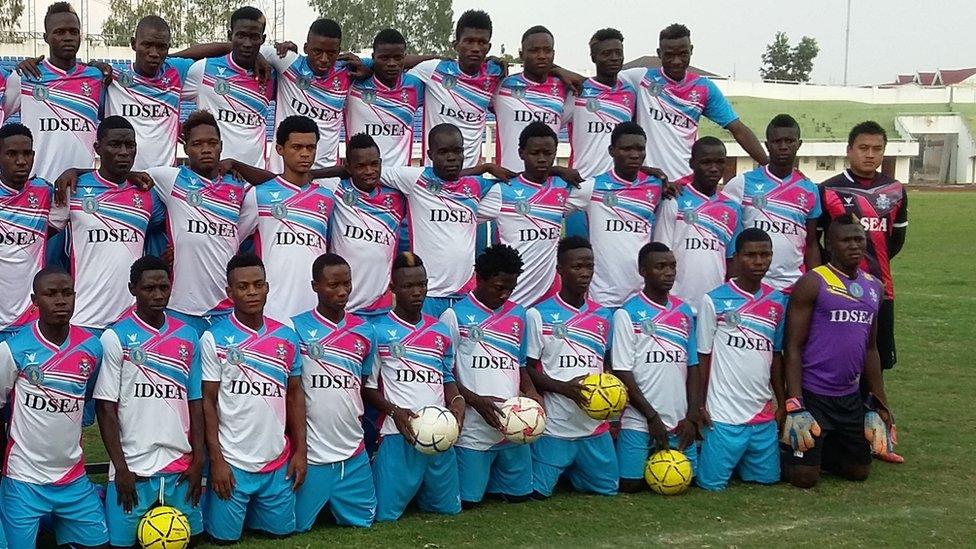
- Published22 May 2015
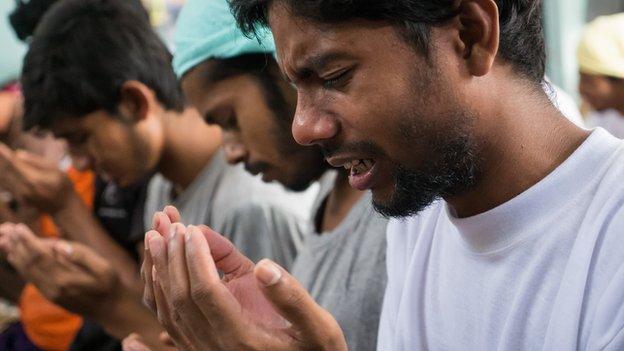
- Published21 April 2015
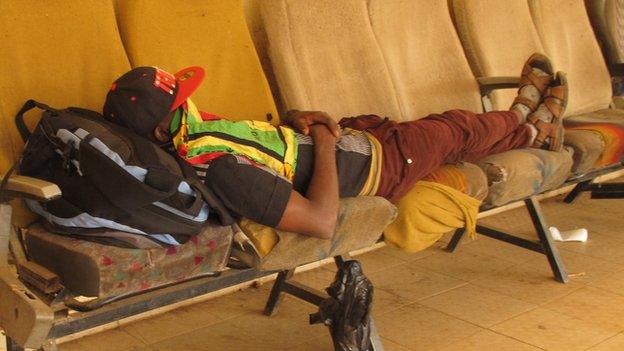
- Published30 September 2014
- Published28 June 2023
